A senior Iranian lawmaker blamed the western powers for their double standards on terrorism, cautioning that the West’s approach has strengthened terrorist groups in recent years.
"The United States and the EU recently delisted the terrorist Mojahedin-e Khalq organization (MKO, also known as the MEK, NCR and PMOI) from their list of terrorist organizations, and now they want to list Hezbollah as terrorist entity," Member of the Iranian Parliament’s National Security and Foreign Policy Commission Evaz Heidarpour Shahrezayi told parliament news agency on Monday.
The Iranian legislator described Israeli President Shimon Peres’ call on European Union to put Lebanese Hezbollah on its list of terrorist organizations as completely illogical.
"By lobbying with EU to designate Hezbollah as a terrorist entity, Israelis are trying to isolate the resistant group at the international level," he added.
"This is a clear manifestation of West’s double standard policy on the issue," he concluded.
The MKO is behind a slew of assassinations and bombings inside Iran, a number of EU parliamentarians said in a recent letter in which they slammed a British court decision to remove the MKO from the British terror list. The EU officials also added that the group has no public support within Iran because of their role in helping Saddam Hussein in the Iraqi imposed war on Iran (1980-1988).
Many of the MKO members abandoned the terrorist organization while most of those still remaining in the grouplet are said to be willing to quit but are under pressure and torture not to do so.
A May 2005 Human Rights Watch report accused the MKO of running prison camps in Iraq and committing human rights violations.
According to the Human Rights Watch report, the outlawed group puts defectors under torture and jail terms.
The group, founded in the 1960s, blended elements of Islamism and Stalinism and participated in the overthrow of the US-backed Shah of Iran in 1979. Ahead of the revolution, the MKO conducted attacks and assassinations against both Iranian and Western targets.
The group started assassination of the citizens and officials after the revolution in a bid to take control of the newly established Islamic Republic. It killed several of Iran’s new leaders in the early years after the revolution, including the then President, Mohammad Ali Rajayee, Prime Minister, Mohammad Javad Bahonar and the Judiciary Chief, Mohammad Hossein Beheshti who were killed in bomb attacks by MKO members in 1981.
The group fled to Iraq in 1986, where it was protected by Saddam Hussein and where it helped the Iraqi dictator suppress Shiite and Kurd uprisings in the country.
The terrorist group joined Saddam’s army during the Iraqi imposed war on Iran (1980-1988) and helped Saddam and killed thousands of Iranian civilians and soldiers during the US-backed Iraqi imposed war on Iran.
Since the 2003 US invasion of Iraq, the group, which now adheres to a pro-free-market philosophy, has been strongly backed by neo-conservatives in the United States, who argued for the MKO to be taken off the US terror list.
The US formally removed the MKO from its list of terror organizations in early September, one week after Secretary of State Hillary Clinton sent the US Congress a classified communication about the move. The decision made by Clinton enabled the group to have its assets under US jurisdiction unfrozen and do business with American entities, the State Department said in a statement at the time.
In September 2012, the last groups of the MKO terrorists left Camp Ashraf, their main training center in Iraq’s Diyala province. They have been transferred to Camp Liberty which lies in the Northeast of the Baghdad International Airport.
Camp Liberty is a transient settlement facility and a last station for the MKO in Iraq.
Fars News Agency
Iraqi Prime Minister Nouri al-Maliki called on the UN to speed up the process of expulsion of the members of the terrorist Mojahedin-e Khalq Organization (MKO) from Iraq.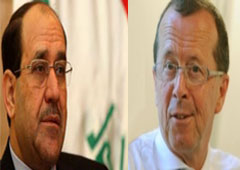
Ali Al-Moussavi, a senior advisor to the Iraqi prime minister, announced that Maliki has met with Martin Kobler, Special Representative of the UN Secretary-General in Iraq over the UN’s activities in Iraq, including the transfer of the MKO from the country.
Moussavi said that Maliki has asked the UN representative to fulfill his pledge to rapidly implement expulsion of the MKO members from Iraq’s soil.
The advisor stated that Maliki has told Kobler that "Iraq can no more tolerate" the terrorist organization’s members and will not extend their presence in Iraq "even for one single hour", reiterating that any MKO overstay in Iraq will be illegal.
The United Nations Assistance Mission in Iraq (UNAMI) monitors the transfer of Camp Ashraf residents to Camp Liberty which lies Northeast of the Baghdad International Airport.
The MKO, founded in the 1960s, blended elements of Islamism and Stalinism and participated in the overthrow of the US-backed Shah of Iran in 1979. Ahead of the revolution, the MKO conducted attacks and assassinations against both Iranian and Western targets.
The group started assassination of the citizens and officials after the revolution in a bid to take control of the newly-established Islamic Republic. It killed several of Iran’s new leaders in the early years after the revolution, including the then President, Mohammad Ali Rajayee, Prime Minister, Mohammad Javad Bahonar and the Judiciary Chief, Mohammad Hossein Beheshti who were killed in bomb attacks by MKO members in 1981.
The group fled to Iraq in 1986, where it was protected by Saddam Hussein and where it helped the Iraqi dictator suppress Shiite and Kurd uprisings in the country.
The terrorist group joined Saddam’s army during the Iraqi imposed war on Iran (1980-1988) and helped Saddam and killed thousands of Iranian civilians and soldiers during the US-backed Iraqi imposed war on Iran.
Since the 2003 US invasion of Iraq, the group, which now adheres to a pro-free-market philosophy, has been strongly backed by neo-conservatives in the United States, who argued for the MKO to be taken off the US terror list.
The US formally removed the MKO from its list of terror organizations in early September, one week after Secretary of State Hillary Clinton sent the US Congress a classified communication about the move. The decision made by Clinton enabled the group to have its assets under US jurisdiction unfrozen and do business with American entities, the State Department said in a statement at the time.
In September 2012, the last groups of the MKO terrorists left Camp Ashraf, their main training center in Iraq’s Diyala province. They have been transferred to Camp Liberty.
Germany’s Ambassador to Iraq Britta Wagner said her government supports expulsion of the member of the terrorist Mojahedin-e Khalq Organization (MKO) from Iraq.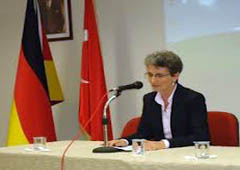
According to a report by Buratha news website, Wagner praised in a statement the performance of the United Nations Assistance Mission in Iraq (UNAMI) in monitoring transfer of the MKO members from Camp Ashraf, the terrorist group’s main training camp in Iraq, to the Camp Liberty, a transient settlement facility in Iraq.
"I would like to express the full support of the German federal government to the United Nations Assistance Mission in Iraq (UNAMI) that has monitored the transfer of Camp Ashraf residents to Camp Liberty," she said.
The MKO, founded in the 1960s, blended elements of Islamism and Stalinism and participated in the overthrow of the US-backed Shah of Iran in 1979. Ahead of the revolution, the MKO conducted attacks and assassinations against both Iranian and Western targets.
The group started assassination of the citizens and officials after the revolution in a bid to take control of the newly-established Islamic Republic. It killed several of Iran’s new leaders in the early years after the revolution, including the then President, Mohammad Ali Rajayee, Prime Minister, Mohammad Javad Bahonar and the Judiciary Chief, Mohammad Hossein Beheshti who were killed in bomb attacks by MKO members in 1981.
The group fled to Iraq in 1986, where it was protected by Saddam Hussein and where it helped the Iraqi dictator suppress Shiite and Kurd uprisings in the country.
The terrorist group joined Saddam’s army during the Iraqi imposed war on Iran (1980-1988) and helped Saddam and killed thousands of Iranian civilians and soldiers during the US-backed Iraqi imposed war on Iran.
Since the 2003 US invasion of Iraq, the group, which now adheres to a pro-free-market philosophy, has been strongly backed by neo-conservatives in the United States, who argued for the MKO to be taken off the US terror list.
The US formally removed the MKO from its list of terror organizations in early September, one week after Secretary of State Hillary Clinton sent the US Congress a classified communication about the move. The decision made by Clinton enabled the group to have its assets under US jurisdiction unfrozen and do business with American entities, the State Department said in a statement at the time.
In September 2012, the last groups of the MKO terrorists left Camp Ashraf, their main training center in Iraq’s Diyala province. They have been transferred to Camp Liberty which lies Northeast of the Baghdad International Airport.
The US State Department spokesperson called on the terrorist Mojahedin-e Khalq organization (MKO, also known as the MEK, NCR and PMOI) "not to relocate back" to Camp Ashraf, their former military headquarters 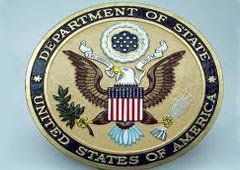 located some 100 kilometers West of the Iranian border.
located some 100 kilometers West of the Iranian border.
"The only peaceful and durable solution for these individuals is resettlement outside Iraq, and that should continue to be the focus of everybody involved in this effort," Victoria Nuland said, reported Habilian Association, a human rights NGO representing the families of Iranian terror victims.
Following the mortar attack on the Camp Liberty earlier the week, the group called on the US administration to "facilitate the transfer of" its members in Camp Liberty back to Camp Ashraf, their former military headquarters.
"The answer for the individuals at Hurriya is not to relocate back to Ashraf," said Nuland.
She also made a reference to those advocating the MKO, and said, "If they want to see them safe, if they want to see them have a better life, the answer is outside of Iraq."
The recent rocket attack on Camp Liberty – the transient settlement facility of the terrorist Mojahedin-e Khalq 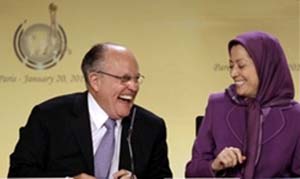 Organization in Iraq – unveiled the deep differences between the terrorist group and its American and European lobbyists.
Organization in Iraq – unveiled the deep differences between the terrorist group and its American and European lobbyists.
According to a report by Didehban center, pro-MKO lobbyists, who are mostly retired European and American politicians, have recently concluded that the criminal activities of the MKO (also known as the MEK, PMOI and NCR) will definitely prove costly for them.
They have recently increased their criticism about the "irresponsible" remarks of MKO’s ringleader, Maryam Rajavi, and the negative impacts of her remarks.
These lobbyists have realized that MKO ringleaders want to massacre the group’s members as they see such bloodshed as the only way to guarantee their longer stay in Iraq, while their lobbyists such as former New York mayor Rudy Giuliani have asked for the transfer of the MKO members to the US, said the Didehban report.
In Washington on Saturday, at a convention of Iranian-Americans, Giuliani called on the United States to take in the camp residents.
"These people can all be removed within hours," Giuliani said. "Planes can be sent immediately. They can be here within a day. We have done far more difficult things than that. It’s only about 3,000 people."
The report came after some media reports alleged that Katyusha rockets fired on the Camp Liberty have killed five members of the MKO. About 40 members of the terrorist group were reportedly wounded in Saturday’s attack, along with three Iraqi policemen, said the reports.
Meantime, a senior Iraqi lawmaker said that the recent rocket attack on Camp Liberty was a move to convince Iraq to allow the MKO to return to Camp Ashraf, but such actions are futile the grouplet’s return to its main training camp is impossible.
"Attack on the MKO aimed to rally the support of the international community’s public opinion for the MKO’s return to the Diyala province and Camp Ashraf," Abdullah al-Naeli said on Wednesday.
"But returning the MKO’s members to their previous position is not possible, specially given the fact that Diyala residents spent much efforts to expel them from their province," Naeli was quoted by Ashraf News as saying.
The Iraqi lawmaker added that the Baghdad government is seriously investigating the attack to find out the realities.
A senior Iraqi lawmaker said that the recent rocket attack on the terrorist Mojahedin-e Khalq Organization 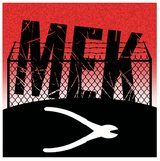 transient settlement in Camp Liberty was a move to convince Iraq to allow the MKO to return to Camp Ashraf, but such actions are futile the group’s return to its main training camp is impossible.
transient settlement in Camp Liberty was a move to convince Iraq to allow the MKO to return to Camp Ashraf, but such actions are futile the group’s return to its main training camp is impossible.
"Attack on the MKO aimed to rally the support of the international community’s public opinion for the MKO’s return to the Diyala province and Camp Ashraf," Abdullah al-Naeli said on Wednesday.
"But returning the MKO’s members to their previous position is not possible, specially given the fact that Diyala residents spent much efforts to expel them from their province," Naeli was quoted by Ashraf News as saying.
The Iraqi lawmaker added that the Baghdad government is seriously investigating the attack to find out the realities.
Some media reports alleged that Katyusha rockets fired on the Camp Liberty, the transient settlement facility of the MKO (also known as the MEK, PMOI and NCR) in Iraq, have killed five members of the MKO. About 40 members of the terrorist group were reportedly wounded in Saturday’s attack, along with three Iraqi policemen.
Speaking to reporters here in Tehran on Tuesday, Iran’s Foreign Ministry Spokesman Ramin Mehman-Parast said that the move is part of the MKO’s efforts to portray itself as an oppressed community in a bid to postpone its expulsion from Iraq’s soil.
Mehman-Parast also called on the UN and Iraqi officials to rapidly implement the agreements on the expulsion of the MKO from Iraq.
Also on Tuesday, Iran’s Ambassador to Baghdad Hassan Danayeefar said that the attack is part of the MKO’s efforts to return to Camp Ashraf.
Iran has nothing to do with the recent rocket attack on Camp Liberty, the transient settlement facility of the anti-Iran terrorist Mojahedin-e Khalq Organization (MKO also known as the MEK, PMOI and NCR) in Iraq, an Iranian spokesman said.
Media reports alleged that Katyusha rockets fired on the Camp Liberty near Baghdad have killed five members of the MKO. About 40 members of the terrorist group were reportedly wounded in Saturday’s attack, along with three Iraqi policemen.
Speaking to reporters here in Tehran today, Foreign Ministry Spokesman Ramin Mehman-Parast said that the attack was carried out inside Iraqi soil and "Iran has nothing to do with it".
He said that the move is part of the MKO’s efforts to portray itself as an oppressed community in a bid to postpone its expulsion from Iraq’s soil.
Mehman-Parast also called on the UN and Iraqi officials to rapidly implement the agreements on the expulsion of the MKO from Iraq.
The group, founded in the 1960s, blended elements of Islamism and Stalinism and participated in the overthrow of the US-backed Shah of Iran in 1979. Ahead of the revolution, the MKO conducted attacks and assassinations against both Iranian and Western targets.
The group started assassination of the citizens and officials after the revolution in a bid to take control of the newly-established Islamic Republic. It killed several of Iran’s new leaders in the early years after the revolution, including the then President, Mohammad Ali Rajayee, Prime Minister, Mohammad Javad Bahonar and the Judiciary Chief, Mohammad Hossein Beheshti who were killed in bomb attacks by MKO members in 1981.
The group fled to Iraq in 1986, where it was protected by Saddam Hussein and where it helped the Iraqi dictator suppress Shiite and Kurd uprisings in the country.
The terrorist group joined Saddam’s army during the Iraqi imposed war on Iran (1980-1988) and helped Saddam and killed thousands of Iranian civilians and soldiers during the US-backed Iraqi imposed war on Iran.
Since the 2003 US invasion of Iraq, the group, which now adheres to a pro-free-market philosophy, has been strongly backed by neo-conservatives in the United States, who argued for the MKO to be taken off the US terror list.
The US formally removed the MKO from its list of terror organizations in early September, one week after Secretary of State Hillary Clinton sent the US Congress a classified communication about the move. The decision made by Clinton enabled the group to have its assets under US jurisdiction unfrozen and do business with American entities, the State Department said in a statement at the time.
In September 2012, the last groups of the MKO terrorists left Camp Ashraf, their main training center in Iraq’s Diyala province. They have been transferred to Camp Liberty which lies Northeast of the Baghdad International Airport.
Iraqi officials announced on Sunday that they have found the bodies of a large number of Iraqi citizens and officials slain by the terrorist Mojahedin-e Khalq Organization (MKO, also known as the MEK, PMOI and NCR) in a mass grave in MKO’s Camp Ashraf in the Northern Diyala province.
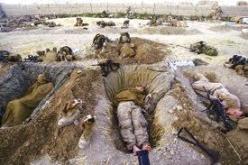 "As proofs and evidence show, the corpses of Iraq’s Shiite citizens, officials, officers, sheikhs and religious scholars have been buried in the mass grave," a high-ranking Iraqi political source said in an interview with al-Mustaqbal al-Iraq news agency.
"As proofs and evidence show, the corpses of Iraq’s Shiite citizens, officials, officers, sheikhs and religious scholars have been buried in the mass grave," a high-ranking Iraqi political source said in an interview with al-Mustaqbal al-Iraq news agency.
He said that the corpses belong to the people who were killed by the MKO from 2006 to 2009.
An Iraqi official had informed in early January that several mass graves had been unearthed in Camp New Iraq, formerly known as Camp Ashraf, in the Diyala Province, which was the headquarters of the terrorist MKO before a majority of the group members were transferred to Camp Liberty around Baghdad a few months ago.
Sadeq al-Husseini, the deputy chairman of Diyala’s provincial council, added that the Iraqi Ministry of Human Rights was in charge of determining the identities of the bodies and whether they were Kurds, the residents of southern provinces or from the town of Khalis in Diyala Province.
He said that the bodies were being examined in medical laboratories in Arbil Province, adding that human rights violations in the camp did not seem improbable.
The MKO is behind a slew of assassinations and bombings inside Iran, a number of EU parliamentarians said in a recent letter in which they slammed a British court decision to remove the MKO from the British terror list. The EU officials also added that the group has no public support within Iran because of their role in helping Saddam Hussein in the Iraqi imposed war on Iran (1980-1988.)
Many of the MKO members abandoned the terrorist organization while most of those still remaining in the grouplet are said to be willing to quit but are under pressure and torture not to do so.
A May 2005 Human Rights Watch report accused the MKO of running prison camps in Iraq and committing human rights violations.
According to the Human Rights Watch report, the outlawed group puts defectors under torture and jail terms.
The group, founded in the 1960s, blended elements of Islamism and Stalinism and participated in the overthrow of the US-backed Shah of Iran in 1979. Ahead of the revolution, the MKO conducted attacks and assassinations against both Iranian and Western targets.
The group started assassination of the citizens and officials after the revolution in a bid to take control of the newly established Islamic Republic. It killed several of Iran’s new leaders in the early years after the revolution, including the then President, Mohammad Ali Rajayee, Prime Minister, Mohammad Javad Bahonar and the Judiciary Chief, Mohammad Hossein Beheshti who were killed in bomb attacks by MKO members in 1981.
The group fled to Iraq in 1986, where it was protected by Saddam Hussein and where it helped the Iraqi dictator suppress Shiite and Kurd uprisings in the country.
The terrorist group joined Saddam’s army during the Iraqi imposed war on Iran (1980-1988) and helped Saddam and killed thousands of Iranian civilians and soldiers during the US-backed Iraqi imposed war on Iran.
Since the 2003 US invasion of Iraq, the group, which now adheres to a pro-free-market philosophy, has been strongly backed by neo-conservatives in the United States, who argued for the MKO to be taken off the US terror list.
The US formally removed the MKO from its list of terror organizations in early September, one week after Secretary of State Hillary Clinton sent the US Congress a classified communication about the move. The decision made by Clinton enabled the group to have its assets under US jurisdiction unfrozen and do business with American entities, the State Department said in a statement at the time.
An Algerian journalist said the crimes of the terrorist Mujahedin-e Khalq Organization (MKO, also known as the MEK, NCR and PMOI) will not fade away from the memories of the Iranian nation, 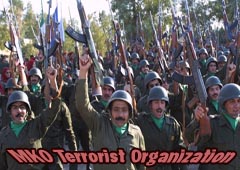 Muslims and the Arab world.
Muslims and the Arab world.
Speaking in an interview with the Habilian Association, human rights NGO formed of the families of Iranian terror victims, Dr. Yahya Abu Zakaria pointed to the crimes of the MKO against Iranian scholars and intellectuals, and said, "These martyrs were the ones who helped Imam Khomeini establish the Islamic Revolution."
Referring to the lack of such great figures of Islamic Revolution as Ayatollah Dastgheib and Ayatollah Dr. Beheshti, Dr. Abu Zakaria said, "The nascent Islamic government needed every one of these individuals, as it takes a long time for a person to become a scholar, but the Monafeqin (Hypocrites, a term used for MKO in Iran and Iraq) assassinate these scholars to deprive the Iranian people of their knowledge and hinder the (Iranian) government from propagating Islamic thoughts."
The political analyst described MKO’s crimes as "unforgivable", and said, "We, as the Islamic Ummah, will prosecute them (MKO members) should the Iranian nation not take a legal action against them, as their crimes were not only against the Iranian people, but against the Muslim Ummah."
"They robbed the Ummah of great scholars and indefatigable Ulama who were melted into Allah’s divine essence and gave away their lives to provide Islamic epistemic theories," he added. "Thus, they have stood against the Islamic culture and civilization."
He added that he has seen the MKO members in Europe distributing anti-Iran leaflets, saying, "I’ve told them: Shame on you, that you’ve resorted to the western countries to overthrow your regime, which is the only regime in the world who has extended his hand to every country for cooperation."
During the early years of the Islamic Revolution, MKO assassinated a number of great Muslim scholars whose presence were a threat to the Islamic-Marxist guerrilla group. Among these scholars, one can refer to Ayatollah Seyed Abdolhossein Dastgheib, assassinated on December 11, 1981, when he along with his companions were heading to Shiraz main mosque to perform the Friday congressional prayers by a female member of the MKO.
Another great Muslim scholar, Ayatollah Ashrafi Esfahani, who led the Friday prayers in Kermanshah, was assassinated when a MKO-linked suicide-bomber embraced him during he Friday prayers and pulled the pin of a hand grenade.
Iran’s Judiciary Spokesman and Prosecutor-General Gholam Hossein Mohseni Ejeii said the West’s support for the terrorist Mojahedin-e Khalq Organization (the MKO, also known as the 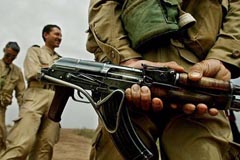 MEK, NCR and PMOI) displays that its mottos about respect for human rights are mere words which meet no action.
MEK, NCR and PMOI) displays that its mottos about respect for human rights are mere words which meet no action.
"How is it possible that the US and Israel as well as some western countries consider themselves as supporters of human rights, while they paved the way for the killing of and damage to a large number of Iranian citizens through their support for the MKO in the past years," Mohseni Ejeii said.
Instead of blocking the attempts of terrorist groups in line with their mottos about support for human rights, the western countries recognize these groups and endorse the behavior of these terrorist groups through this recognition, he complained.
The MKO is behind a slew of assassinations and bombings inside Iran, a number of EU parliamentarians said in a recent letter in which they slammed a British court decision to remove the MKO from the British terror list. The EU officials also added that the group has no public support within Iran because of their role in helping Saddam Hussein in the Iraqi imposed war on Iran (1980-1988).
Many of the MKO members abandoned the terrorist organization while most of those still remaining in the group are said to be willing to quit but are under pressure and torture not to do so.
A May 2005 Human Rights Watch report accused the MKO of running prison camps in Iraq and committing human rights violations.
According to the Human Rights Watch report, the outlawed group puts defectors under torture and jail terms.
The group, founded in the 1960s, blended elements of Islamism and Stalinism and participated in the overthrow of the US-backed Shah of Iran in 1979. Ahead of the revolution, the MKO conducted attacks and assassinations against both Iranian and Western targets.
The group started assassination of the citizens and officials after the revolution in a bid to take control of the newly established Islamic Republic. It killed several of Iran’s new leaders in the early years after the revolution, including the then President, Mohammad Ali Rajayee, Prime Minister, Mohammad Javad Bahonar and the Judiciary Chief, Mohammad Hossein Beheshti who were killed in bomb attacks by MKO members in 1981.
The group fled to Iraq in 1986, where it was protected by Saddam Hussein and where it helped the Iraqi dictator suppress Shiite and Kurd uprisings in the country.
The terrorist group joined Saddam’s army during the Iraqi imposed war on Iran (1980-1988) and helped Saddam and killed thousands of Iranian civilians and soldiers during the US-backed Iraqi imposed war on Iran.
Since the 2003 US invasion of Iraq, the group, which now adheres to a pro-free-market philosophy, has been strongly backed by neo-conservatives in the United States, who argued for the MKO to be taken off the US terror list.
The US formally removed the MKO from its list of terror organizations in early September, one week after Secretary of State Hillary Clinton sent the US Congress a classified communication about the move. The decision made by Clinton enabled the group to have its assets under US jurisdiction unfrozen and do business with American entities, the State Department said in a statement at the time.
